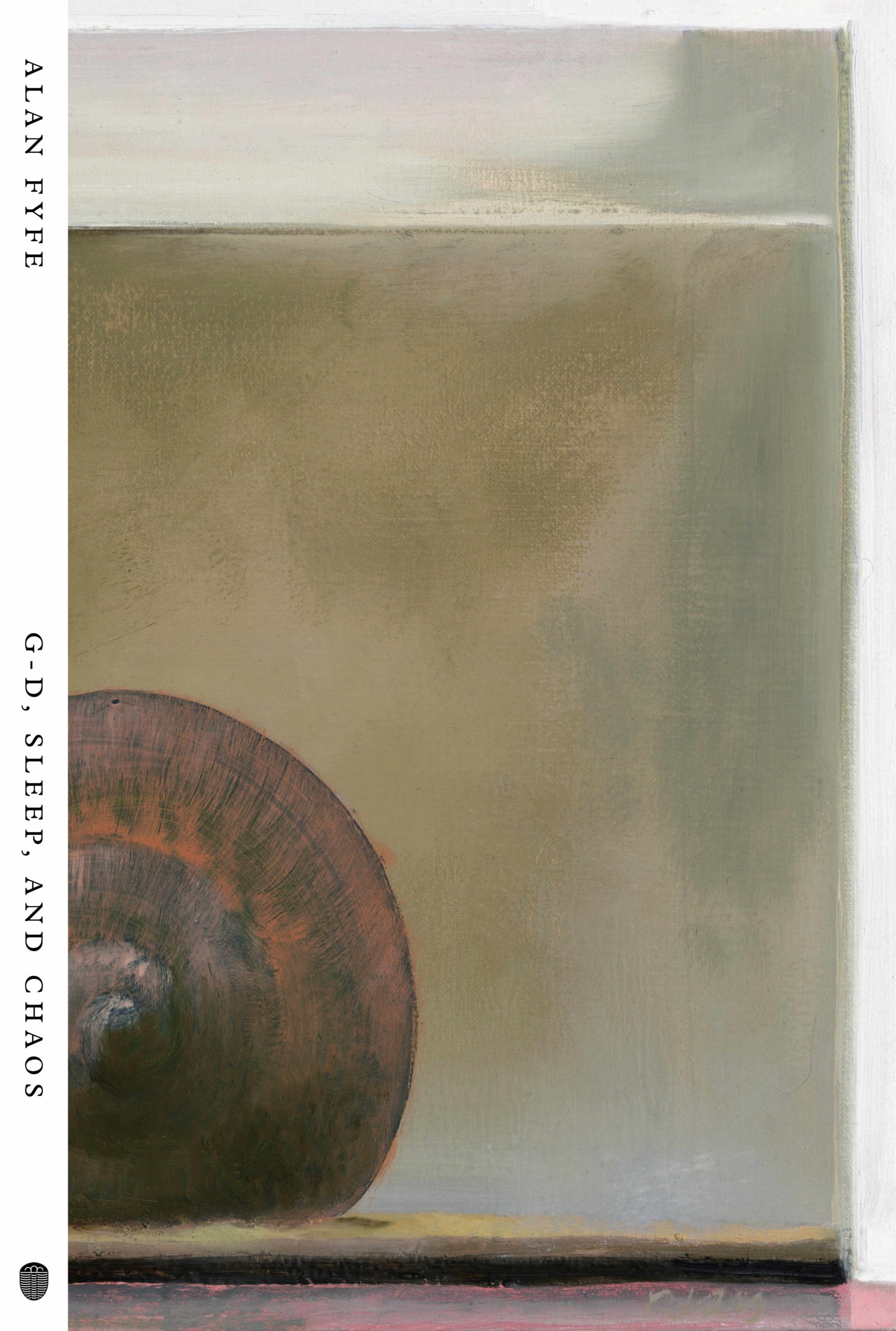 Reviewed by Lisa Collyer
Reviewed by Lisa Collyer
G-d, Sleep, and Chaos
by Alan Fyfe
Life Before Man Books
156 Pages, ISBN: 9780645920970, Paperback, Aug 2024
Alan Fyfe’s debut poetry collection, G-d, Sleep, and Chaos, is an accomplished work that is steeped in the author’s Jewish lineage, literary and philosophical traditions; yet maintains firmly rooted in the everyday. Regardless of a readers (un)faith, the collection centres on the existential search for meaning that is universally relatable.
Fyfe’s signature wry humour grounds the collection, as he deftly toggles between philosophical allusion and dark comedy in subtitles, such as: ‘First (Second and Third) Problema: Where were we going with this again?’, ‘Why would I even get out of bed?’ and ‘Why are you even like this?’ In the titular section ‘Part Three: G-d, Sleep, and Chaos’ the speaker has a metaphysical experience at ‘Perth Central’ where ‘G-d…bums a smoke’ in the prose poem ‘Euthyphro Dilemma’.
‘There’s an issue I’m having. You’re omnipotent but the bus/ is still late. The most-high nods his everywhere head. Silvery/ dandruff floats to the pavement like manna. His phone rings./ The seraphim are calling. Their pay’s infinity late. He never/ answers.’
The ethical dilemma stems from Plato’s dialogues, and a discussion between Socrates and Euthyphro on the nature of piety: the likes of which Socrates was famed for: challenging the assumptions of the day. Fyfe takes lofty questions, pivotal to western philosophy and monotheistic religious faiths, including Judaism, Islam, and Christianity, and places them in contemporary society: in the most profane spaces.
A central theme to Fyfe’s literary concerns (also see his novel, T, Transit Publishing, 2022) is the representation of society’s underclass, and a social levelling. In the poem, ‘The Bin Truck Said’ the bin speaks with the auditory imagery we are all familiar with at six a.m. in the morning, as we lay in bed wondering why we should get up at all.
Co-mingled, recycled, composted communal
cradle of the neighbourhood’s yesterdays.
Great diesel fired leveller
digests all equally in its creaky iron gut,
wagyu scraps and nugget fat just the same.
Despite the profane subjects: dole queues, building sites, and the bottom of coffee cups; Fyfe elevates the ordinary to extraordinary heights with captivating imagery, and a musicality that gently lulls the reader into a meditative trance. In ‘A Song for Saint Roch’ ‘two pristine cigarettes’ are juxtaposed with ‘two (painted) apples’: elevating the former to high art reminiscent of ‘The Plastic Bag Scene’ in the film American Beauty; viewed through a poet’s lens, to seek beauty from the most mundane items.
I found two pristine cigarettes
in an old backpack I was clearing out.
In Helen’s paintings, two apples
nest in darker/ lighter contrast.
Only a petite slash of the palette knife
and there’s a stalk, offset into azure.
And just when we’re becoming too tunnel visioned into seeing only beauty, Fyfe sharply returns our focus to the unjust, the bleak, and the inequitable. In ‘Pinjarra Part 2’ the setting is a reminder of the blood flow of First Nations’ peoples in the Pinjarra massacre, juxtaposed with the speaker’s meditation on Jewish migration, post the holocaust. Baked goods such as ‘cream-cheese for rugelach’ are essential for maintaining family ties, many of which were broken.
In ‘A Psalm for Esther’, the tradition of ‘hamantasch’ is representative of the vulva as an honour to the origins of us. In true Fyfe style, the religious and sacred are bought down to earth with an explicit vernacular: to reclaim sacred language, now deemed profane.
this is the story of cunts and that cunts birthed every one of/ you but sometimes a biscuit is just a biscuit and centred with a / glob of jam like sticky truth so she replies cunts are the victory/ and the wave crest
In a bid to find meaning, a preoccupation with death is omnipresent; after all, the collection begins with ‘Elegies for a Tuesday Afternoon’, which includes the speaker’s last wishes in ‘A funeral in Pinjarra’ after W.H. Auden’s ‘Funeral Blues’.
Haul my half dead carcass to a teleconference,
so I can tell everyone I’m not afraid,
Even though I’ve always been afraid.
The elegy has a punk sensibility with a soft heart, like all the poems in ‘G-d, Sleep, and Chaos; there is a vulnerability that is surrounded by a tough shell. It is a scholarly informed collection, subsequently the School of Philosophy coupled with the School of Life, makes for an exceptional read.
References:
Auden, W.H., ‘Funeral Blues’ (1939) viewed 2/5/25 on All Poetry https://allpoetry.com/funeral-blues
‘EUTHYPHRO’ Published online by Cambridge University Press viewed 2/5/25
Fyfe, A., T, Transit Lounge Publishing, Melbourne, 2022.
Mendes, S., (Directory), ‘The Dancing Bag’ video clip from American Beauty, (1999)
https://www.youtube.com/watch?v=tB0th8vNLxo viewed 2/5/25
About the reviewer: Lisa Collyer is a writer and educator in Boorloo (Perth). She is the author of the poetry collection, How To Order Eggs Sunny Side Up (2023) (short-listed for The Dorothy Hewett Award) and published with Life Before Man Books. Her personal essay, Prolonged Exposure is published in the anthology, Women of a Certain Courage (2025) with Fremantle Press. Her poem, ‘The Grape Pickers’ was short-listed for the Gwen Harwood Poetry Prize (2025). She recently won an artist residence at Bundanon Art Museum (2025) where she will create new work on climate grief. Her second poetry collection, Gold Digger will be published in September, 2025.